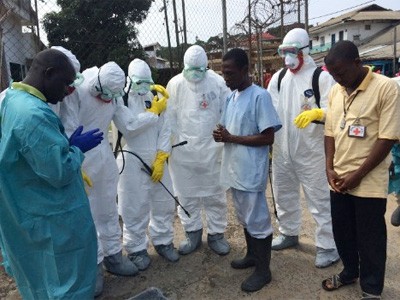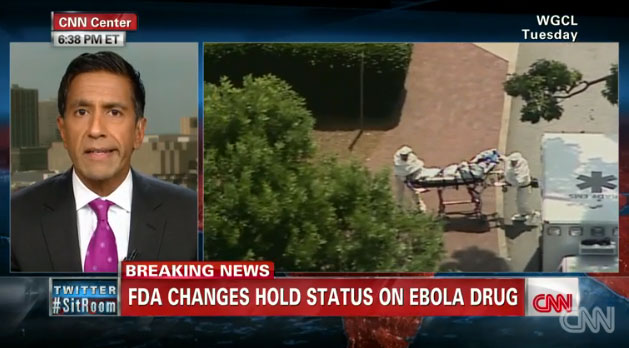Troubling news this week from the World Health Organization and the Centers for Disease Control and Prevention (CDC) about the burgeoning Ebola epidemic: the CDC issued a worst-case scenario forecast of as many as 1.4 million cases by January.
While still largely confined to Africa, the Ebola outbreak is of growing concern worldwide and while not primarily a business story, is sure to have financial and economic implications, even in markets far from Liberia and other affected locales. Politico asks “How prepared is the U.S. for Ebola” and many people in your audience likely are wondering the same thing.
You might want to start at least raising the topic with companies and organizations on your beats. Some are obvious, such as airlines — which are receiving CDC guidance about infection control procedures; “treat all bodily fluids as though they are infectious,” the guidelines note. What are the airlines that serve your market doing to change procedures and/or train not only cabin crew but contractors responsible for aircraft cleaning? Are any new supplies being ordered, like HAZMAT-handling kits for onboard use, or masks or other precautionary equipment? What about bus lines, railways, cruise ships, charter companies? It may sound farfetched now but if Ebola cases do grow into the millions, passengers are going to get awfully jumpy if they are encased in a flying tub with someone who’s feverish or otherwise exhibiting symptoms. What policies are being considered to address mid-air concerns and passenger complaints?

Same goes for any company, transportation or not, that deals with a wide swath of the general public. Hotels, resorts and campgrounds, malls, theaters, child care centers. Again, perhaps it’s premature with Ebola not yet on American shores, but you might start the conversation now.
EBOLA AND THE HEALTH CARE BEAT
The health care beat is fertile ground for Ebola-related stories; Reuters reports “U.S. hospitals unprepared to handle Ebola waste,” and this is an excellent launchpad for a story not only about hospital biohazard procedures (even those that deal with more ordinary dangers like the United States flu season) but about the specialty companies that handle bio waste from hospitals, doctor’s offices, veterinary offices and even funeral parlors and mortuaries. The market research firm IBISWorld says medical waste disposal is a $5 billion industry and growing, with U.S. medical facilities expected to generate 5.9 million tons of medical waste in 2014 alone. Why not check in with such firms in your area — they are regulated by the state, for the most part, according to this Environmental Protection Agency — here are state laws and regulators that can point you to licensed companies.
And I would bet that Ebola training — for health care workers, first responders, law enforcement, school staffers and others — will ramp up and even become an industry of sorts as the disease spreads.
Obviously with all eyes on the development of Ebola vaccines, you might want to spin off a story about related biomedical research in your area; in addition to university research departments, check biomed business corridors and incubators. Even if you don’t find a local researcher or company working on this specific virus, chances are you’ll find another interesting treatment under way and can explain how research funding, commercialization of discoveries, etc. all intersect in the search for disease cures and treatment. The federal government’s Project Bioshieldd, established in 2004 to fast-track therapies for public health threats like Ebola, may be a way of connecting local entities to the Ebola headlines; check with the administrative authorities — which apparently includes the National Institutes of Health for grants and the Biomedical Advanced Research and Development Authority within the health & human services department — for leads to participating local researchers and companies.
Another angle — corporate giving to Ebola relief efforts, either via cash or in-kind services. And of course you will want to check for ties to Africa among companies on your beat — is the fear of disease hampering business?










